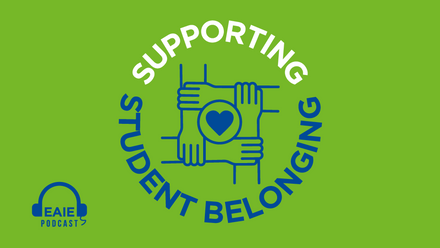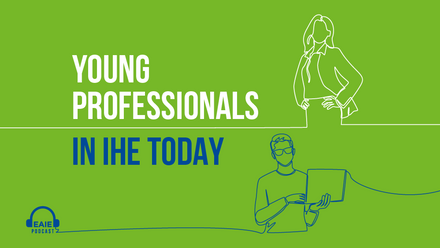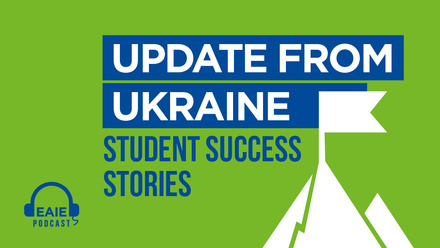Exam stress: top tips to guide your students through tough times

Undergrads are confronted with a difficult challenge: deciding every day what to do, when and with whom. Given the average age of undergraduates – late teens to early 20s – it is not surprising that many are still insecure regarding core aspects of their life, such as identity, sexuality, career, friendships, etc. These things need time to be figured out. Time, many students say, they don’t have, especially during busy exam periods. How can you, as a student adviser, help them through such high-pressure periods?
A recent review of counselling cases and discussions with colleagues from other higher education institutions have shown that a substantial amount of students have started to resort to risky methods that promise to ‘buy them a little extra time’. Skipping meals, sacrificing heavily on sleep, reducing social life to a minimum, abandoning once beloved pastime activities, quitting student jobs, and getting excuses from the GP are frequently reported coping attempts, especially during high pressure times such as finals. In light of this, the fact that a growing number of undergraduates decide to stay or move back in with their parents who can help with laundry, cooking, cleaning and other time-consuming activities, only sounds consequential. Guidance and counselling professionals are hence increasingly confronted with students who are not only experiencing exam stress, but who claim that they actually have ‘no other choice’ than cutting back on what is supposed to be ‘healthy’ and ‘recreational’. How can we support these students?
Relieving pressure: counselling support and special consideration
First and foremost, it is very important to acknowledge the fact that students, especially the younger ones, might experience mental health and/or idiosyncratic issues easily impacting their performance and preventing them from showing their full potential. Not just full-blown mental disorders such as a clinical depression or a psychotic episode, but also shattered friendships, hurt romantic feelings, disappointed expectations, authority issues, worrying about underperformance, etc can affect the student’s well-being to an extent that he or she is incapacitated to fulfil regular academic duties. Therefore, it is paramount to provide (ideally) a psychologically-trained counsellor on campus, who can assess, emotionally support and assist the student and the administration by issuing a special consideration letter enabling the postponement of an exam, a deadline extension, perhaps even the late-drop of a course or getting excused from mandatory class attendance. All these potential exceptional accommodations have proven to be absolutely adequate measures that, if applied on a case-by-case-basis, can prevent crisis escalation and university drop-out as they provide the student with some extra time when he or she really needs it.
Escaping the procrastination trap
Looking at our case studies, however, the majority of students not only complain about the impossibility to balance studying, sleeping, and socialising, usually they feel they have to sacrifice at least one of the three ‘s’s. They also tend to acknowledge that their stress might be partially homemade – simply because they had not started early enough with exam preparations. Some thought they needed an “adrenalin boost from a sense of urgency and real tangible time pressure” to actually get started and remain focused. Especially first semesters seem at risk since students still tend to remember how well they worked under the “last-minute paradigm” back in high school. However, in order to help them adjust to the new demands, it might be crucial to assist them in developing a strategy for changing the self-sabotaging procrastination habit into a more adaptive study routine. Here is one example how this issue could be tackled:
Reframing and instilling hope for change
Send a positive and self-esteem stabilising message, such as: “If you managed to achieve a high school diploma that got you admitted to our university, this strategy seems to have worked well for you, at least in the past. However, realising that this last-minute approach does not seem to work anymore, perhaps due to increased academic or extracurricular demands, how about trying to gradually introduce a new approach? There are actually good chances that you will manage, because you seem to be an intelligent person and you have achieved a lot in your life already, otherwise you wouldn’t be here, right?”
Working on commitment strategies
Propose concrete ways for forming and strengthening the commitment to change the old habit: encourage the student to use a quiet moment to think of all the arguments for starting earlier with exam preparations rather than procrastinating. I know several students who wrote their arguments down on a large sheet of paper and attached it visibly next to their study desks. They said they used it as a reminder of their commitment to the new study approach. Encourage the student to discuss their arguments with friends and get their support as well. Examples of hands-on peer support include encouraging verbal or written statements on Facebook, checking-up on friends regularly, joining the ‘anti-procrastination quest’, rewarding each other for fulfilling self-defined goals, etc.
Action planning and dealing with temptations
Remind the student about the importance of study schedules: encourage them to create a schedule that includes exam preparation activities already at the beginning of each semester. For example, they could reserve at least a couple of hours every week throughout the entire semester for reviewing exam-relevant materials. When thoughts like “I could just use these hours to do something else” occur, the students should refute them using their strongest pro arguments that they wrote down as ‘mental weapons’. Get the student to think about how bad they felt last semester when they found themselves almost paralysed by the time pressure mounting-up around finals. Also remind the student how good they felt when they did manage to stay on track with their early preparations. If they have difficulty getting going, advise them to start with an easy task as it will help them to get back into the flow. Or just get the most difficult and aversive one out of the way, then they will gladly take care of all the less difficult ones waiting for them as ‘desert’.
Taking smart breaks
Should your student already find him or herself in the midst of exam stress telling you about an accumulated sleep deficit, you might want to share the following advice: sometimes ‘pulling an all-nighter’ may seem the only solution to cram in the knowledge desperately needed for an early morning exam scheduled on the next day. However, research has clearly shown that sleep deprivation is directly related to cognitive malfunctioning, in particular to severe concentration difficulties and memory blocks which in the end only undermine one’s capacity to perform. Therefore, the student should first get rid of their sleep deficit and then change their study style by introducing a thing I call ‘smart breaks’. Study only for maximum periods of 1.5-2.0 hours taking breaks of approximately 20–30 minutes in between each period. A smart break is labelled ‘smart’ because it should be responsive to the student’s actual physical and mental needs at the moment they take it.
If the student feels anxious or nervous, for instance, the break should focus on deep relaxation and positive self-instruction. They could engage in diaphragmatic breathing (deep breathing) and combine it with soothing silent statements such as “It will be alright. I will manage. I am already on a good way.” If they feel tired, maybe rather take a “power nap” of only 20-30 minutes. Make sure they know to set an alarm so that they are prevented from entering the full sleep cycle which could be counterproductive as it may interfere with their daily wake-sleep-rhythm. If they are not sleepy but rather drowsy and low on blood pressure, on the other hand, take an active break instead! Going for short walks, doing some yoga, stretching, shadow boxing, etc. They are all excellent activities that can instantly refresh the body and mind. However, activities especially Facebooking, watching videos, replying to e-mails, engaging in potentially difficult conversations, in other words activities that continue to stimulate or strain the mind, should be avoided during breaks. Rather, they should choose between the three: deep relaxation, power napping or energising physical activities – always depending on what the mind and body might need right there and then.
By Frank Haber, Psychological Counselor and Interculturalist, Jacobs University Bremen, Germany
Do you have any other suggestions or advice to help deal with student anxiety during stressful exam times? Share your comments below!







